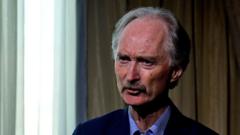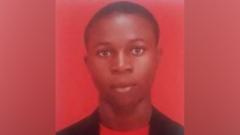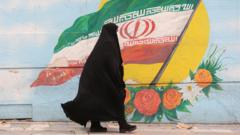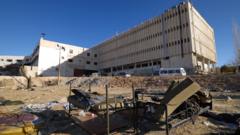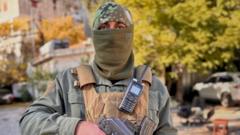The Ugandan government's approach to military trials for civilians garners mixed reactions, underscoring the political tensions surrounding opposition leaders.
Uganda's Museveni Defends Military Trials Amid Opposition Controversy
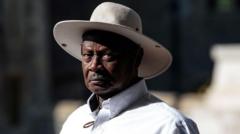
Uganda's Museveni Defends Military Trials Amid Opposition Controversy
President Yoweri Museveni's support for military courts intensifies scrutiny as rival Kizza Besigye faces charges.
Uganda's President Yoweri Museveni, now 80 years old, has publicly defended the use of military courts to handle cases involving civilians, an approach that has sparked significant debate amid ongoing tensions with the opposition. His remarks come after the arrest of Kizza Besigye, an opposition leader and longtime rival, who is currently incarcerated as he faces serious charges linked to firearms possession.
Besigye, aged 68, was apprehended in Kenya and subsequently extradited to Uganda. He has been charged in a military court with possession of firearms and attempting to acquire weapons internationally—allegations he firmly denies. Following a recent court ruling, Besigye learned that he would remain in custody during the festive season, as his trial has been postponed until January.
President Museveni justified the military trials, asserting that any crime related to firearms should be adjudicated in a military setting to preserve national stability. He contended that the civilian judicial system is overwhelmed with cases, causing delays that could compromise public safety. In a post on X, Museveni stated, "The civilian courts were clogged with many court cases... They could, therefore, not handle these gun-wielding criminals quickly. Yet, for stabilization you need speed."
Despite Museveni's reasoning, the practice of trying civilians in military courts has faced criticism from various groups, including the Constitutional Court, which has previously ruled against such trials. Observers note that Besigye's case reflects broader issues regarding the treatment and rights of political dissenters in Uganda.
Besigye has consistently opposed his trial by military court, calling for a fair hearing in a civilian venue if charges are indeed to be pressed against him. The former personal physician to Museveni has been a perennial electoral challenger, having contested and lost multiple presidential elections. While his political activity has waned in recent years, he recently expressed his intention to revitalize his party, which is currently divided into factions.
Advocacy organizations and human rights defenders have rallied in support of Besigye, labeling his arrest and trial as unjust. UN human rights chief Volker Türk criticized the military court system, stating that it deprives civilians of fundamental due process protections.
Despite these criticisms, President Museveni maintains that the use of military trials is necessary for upholding order in Uganda, commending military courts for their contributions to national peace. As the situation unfolds, the implications for political opposition and judicial integrity in Uganda remain uncertain, with calls for reform and adherence to human rights continuing to grow louder.











